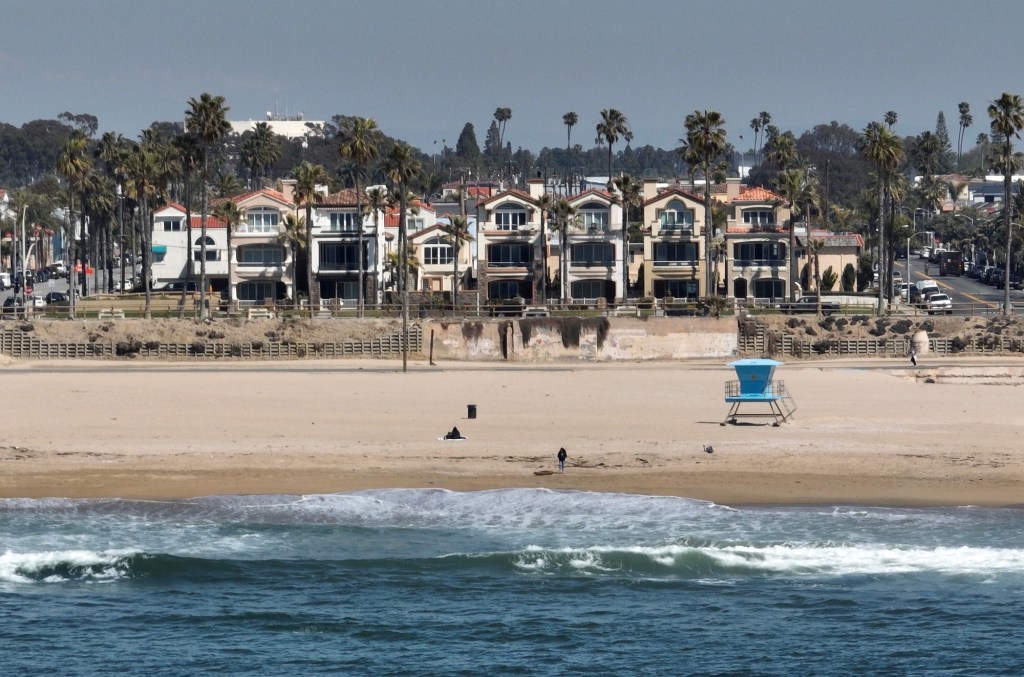
Editor’s note: this commentary is a response to an editorial critical of the California Coastal Commission.
In today’s era of extreme political polarization, it seems like there are fewer things than ever that we all see eye to eye on. But as independent polling shows, Californians across partisan and racial backgrounds agree on the importance of protecting our state’s iconic coastline for our state’s economy, quality of life, and future generations.
Perhaps this is because Californians understand that our state’s beaches belong to all of us, regardless of how near or far we live from the coast. That enjoyment of a cool ocean breeze, the rhythmic sound of crashing waves, or a spectacular sunset on the sand is a legal right for all, not just a privilege for the wealthy few.
This legal right of public coastal access – and the environmental protections that help keep the coast worth visiting – exist thanks to the wisdom of Californians last century. In 1972, voters passed Proposition 20 to enshrine public access, clean water, and healthy beaches in state law and establish the Coastal Commission as the entity to uphold these values while reviewing and approving coastal development such as housing.
We owe a lot to the Californians who had the foresight to protect our coast for all 50 years ago. The coast would look very different without these protections: Developers, special interests, and billionaires would have free reign to bulldoze blufftops, erect beach-destroying seawalls for luxury hotels, and fence off the beaches that all Californians depend on – whether to escape the sweltering heat of summer, find a moment of peace, or share the natural beauty with their families.
Achieving this balancing act for some of California’s most beloved, valuable, and contested lands is no easy feat, but evidence suggests the Commission is succeeding far more than this outlet’s editorial board gave it credit for in an opinion piece last Sunday. While the Coastal Commission has played a leading role in preserving these experiences for the public, it also has made great strides in recent years to facilitate responsible development.
Like all of us, the Commission fully recognizes there is a serious housing shortage in California and is working within its means to expedite permits for new construction, especially in the fire-ravaged areas of Los Angeles. In 2024, the Commission approved 549 projects as consistent with the Coastal Act, and 86% of its decisions were expedited. And permitting was twice as fast in 2024 as it was just four years earlier.
The Coastal Commission and its local government partners also have a strong record on cutting red tape on development of accessory dwelling units, also known as casitas or ADUs, an important strategy in the fight to meet housing demand and bring down costs. Collectively, more than 1,300 construction permits were approved, with the Coastal Commission taking an average duration of just 23 days to review and issue construction waivers.
Current calls by state and federal leadership and other elected officials to dismantle and defund the Coastal Commission are misguided and jeopardize one of California’s most beloved assets, one that most everyone agrees is worth protecting. Having a few powerful billionaires use the Commission as a bargaining chip for federal disaster aid for the victims of the Los Angeles wildfires is political bullying at its worst.
We have the California Coastal Commission to thank for the gorgeous, universally loved, and publicly accessible coastline that helps make California great. The Commission may not be great at making friends among America’s wealthiest, but it has proven that smart development and coastal protection can and do co-exist.
Mel Nutter is a Long Beach resident and served on the California Coastal Commission from 1977-1985.
Originally Published:



